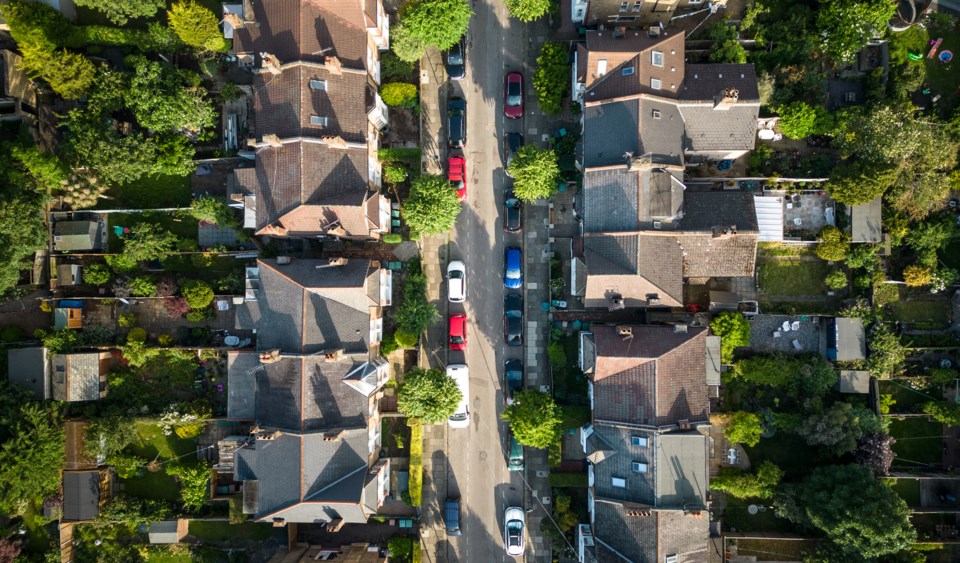“Should the City allow more types of small-scale shops and services in residential areas?” asks the City of Vancouver. The answer is yes, obviously they should.
Until Tuesday (either today or tomorrow, depending on when you read this), the City is conducting a survey on how to make it easier for corner shops and other establishments to open in residential areas. Vancouver is often called “no-fun city”, and reforming many of the city’s arbitrary zoning laws for businesses would go a long way to make it a mostly inaccurate label.
Montreal is a much-loved vacation destination, in-large part because of its vibrancy made possible by the frequency of eclectic cafes, restaurants and establishments in many of its residential neighborhoods. Even Toronto, much maligned for its residual tendency to cull entertainment when and where possible, is full of residential areas around Queen West and Kensington Market, where places to eat and buy groceries are within a short walking-distance from homes.
Compare that to most parts of Vancouver below 16th Street. If you live on 52nd off Oak Street, you cannot simply stroll for a few minutes to a local cafe for a drink with friends. No, you have to drive, walk, or take a bus to Kerrisdale, or the meagre options at the intersections of Oak and 49th or 41st.
It gets worse when descending Oak until 70th, and then you have to trudge over to what’s left of the small businesses on Granville, where even then, there are few places to sit down and relax. This process is much less pleasant during Vancouver’s seven-month rainy season, and the situation on Oak is just one of many afflicting the city’s other mainly residential areas.
In Montreal or Toronto, with unpleasantly cold seasons instead of an unpleasantly wet one, the presence of more local businesses like grocery stores or breakfast spots within a short-walking distance makes life much more bearable over several months of sub-zero temperatures.
Vancouver’s deficiency in that respect is less evident downtown or in older parts of the city going south towards Queen Elizabeth Park. However, it is nearly a desert in the vast sprawl of the city’s former suburbs beyond that point, which comprises most of modern Vancouver’s borders, except for the major arterial routes like Fraser Street.
Zoning laws are mostly the reason for this. Take the case of Del Rey Barbershop on Commercial Drive, whose owner sought to move to a more affordable location in a residential area of nearby Victoria Drive following a rent increase from his landlord. The prospective move would have defrayed the barbershop’s operating costs and provided a larger space for customers and the business owner. Unfortunately, the area’s zoning mandated that no businesses could operate there aside from small grocery stores, and the planned move was kiboshed.
This is not a healthy or fair environment for a more organic, vibrant, and improved city.
Hiked property taxes also bear much of the blame for why so few new businesses open outside longstanding hubs like South Granville for the Cambie Village. Even those established business corridors are suffering too, look no further than Dunbar Street for evidence.
Coal Harbour’s Soirette Pastry Boutique reported in 2019 that property taxes were eating up $15,000 per year, which the owner said eliminated their advertising budget. Soirette closed in 2021, and Coal Harbour experiences far more foot traffic than somewhere like Killarney.
With Vancouver’s rental costs and property taxes already high enough, the latter having been hiked again in February, the least city hall could do to encourage new small businesses is relax Vancouver’s outdated zoning regulations.
Young families do not want zoning laws loosened to the point that a nightclub opens next to the local elementary school. However, making it possible for more residents to walk 10 minutes or less to get a haircut, buy a bottle of wine, or go on a quiet dinner date would enrich every part of Vancouver.
If Vancouverites want more neighbourhoods that look like they belong to a proper city, rather than glorified suburbs, and where ice cream shops on their block are not illegal to open, taking part in the city’s survey is a good way to start.
Geoff Russ is a Vancouver-based writer on housing issues.



